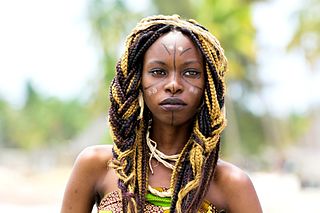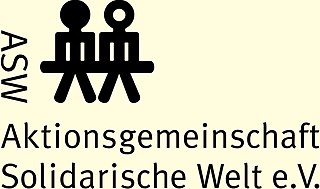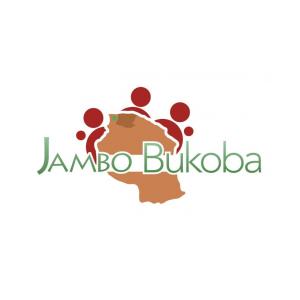Bukoba is a city with a population of 144,938, situated in the northwest of Tanzania on the south-western shores of Lake Victoria. It is the capital of the Kagera region, and the administrative seat for Bukoba Urban District.
German Doctors e.V. is a humanitarian aid organization which operates in the Global South, especially in slums and rural areas. About 300 voluntary doctors are sent to Bangladesh, India, Kenya, Sierra Leone and the Philippines each year to help those who cannot help themselves. German Doctors has been awarded with the official donation seal DZI. Since 2013, the headquarters is located in Bonn, Germany. President of the curatorship is German actress Maria Furtwängler.
Help Lesotho is a non-governmental organization that was founded in 2004 by Dr. Peg Herbert. Based in Ottawa, Canada, Help Lesotho is made up of dedicated people, working to help prevent HIV/AIDS in the country of Lesotho, which has the 2nd highest rate of infection of this disease. Lesotho is located in southern Africa and is entirely surrounded by the Republic of South Africa. Dr. Herbert started the organization after meeting a student, from Lesotho, at the University of Ottawa, where she taught a class in educational psychology. Many Canadians and Basotho have helped the organization, which has support from Canada and many other countries around the world.

The Haya are a Bantu ethnic group based in Kagera Region, northwestern Tanzania, on the western side of Lake Victoria. With over one million people, it is estimated the Haya make up approximately 4% of the population of Tanzania. Historically, the Haya have had a complex kingship-based political system. Agriculture, particularly banana farming, is central to Haya economic life. They are credited with the independent development of carbon steel dating to 2000 years ago using pre-heating techniques.
Dance4life is an international youth initiative to raise awareness and promote prevention of HIV/AIDS.
Sentebale is a registered charity founded in 2006 by Prince Harry and Prince Seeiso of Lesotho. Sentebale helps children and adolescents struggling to come to terms with their HIV and AIDS diagnosis. It provides a safe environment for them to address their mental health among their peers, giving them tools and knowledge.

Mahabir Pun is a Nepali researcher, teacher, social entrepreneur and an activist known for his work in applying wireless technologies to develop remote areas of the Himalayas, also known as the Nepal Wireless Networking Project. He is a widely known figure in Nepal, and his work has been recognised by the Ashoka Foundation, the Ramon Magsaysay Foundation, University of Nebraska at Kearney, and Global Ideas Bank.
The Yunnan Institute of Development, based in Yunnan Province's Yuxi Prefecture, is a Sino-Danish non-governmental organization, non-formal adult education institute established in 2001 in partnership with Yuxi Teacher College. The institution provides an 11-month volunteer training program that trains students as Development Instructors for work in China, India, Africa, and other locations worldwide [1].

Action for World Solidarity is a non-profit and non-governmental association based in Berlin. The organization supports projects in Asia, Africa and Latin America.
Rubya is the site of a Catholic Church mission to the south of Bukoba near the west bank of Lake Victoria in Muleba District, Kagera Region, Tanzania. A seminary was established at Rubya in 1904, one of the first in German East Africa, as it then was. The seminary still operates. There is a cathedral, a nursing school and a district hospital, all operated by the church.

Aahung is a non-governmental organisation which aims to improve sexual and reproductive health. It is based in Karachi, Sindh, Pakistan. It was established in 1994, and in 2013 was awarded the annual Human Rights Tulip prize by the Dutch government.
Africa's Children-Africa's Future (AC-AF) was founded in 2006 and was recognized as a registered charity in 2009. The organization conducted programming in Canada and Tanzania to encourage the empowerment of children and youth in response to the various challenges posed by the AIDS pandemic. AC-AF's programming offered grassroots responses and sustainable solutions to build, strengthen and support community resources. Due to significant reforms in funding opportunities, the organization was forced to close its doors in 2014.

Thomas J. Coates is the Director of the multi-campus University of California Global Health Institute, a UC-wide initiative established to improve health and reduce the burden of disease throughout the world. He is Professor Emeritus at the UCLA David Geffen School of Medicine and Founding Director of the UCLA Center for World Health, a joint initiative of the David Geffen School of Medicine at UCLA and UCLA Health, He has conducted extensive research in the realm of HIV and is the Michael and Sue Steinberg Endowed Professor of Global AIDS Research within the Division of Infectious Diseases at UCLA and Distinguished Professor of Medicine. Health-related behavior is of particular interest to Coates. Throughout his career as a health expert, his theory-based research has been focused on interventions aimed at reducing risks and threats to health
Kilimani Sesame is the Tanzanian version of Sesame Street. The show airs on Tanzania Broadcasting Corporation (TBC) and Television Zanzibar (TVZ). The production was launched in April 2008. The United States Agency for International Development (USAID) sponsored the production.

In October 1978 Uganda invaded the Kagera Salient in northern Tanzania, initiating the Uganda–Tanzania War. The Ugandans met light resistance and in November President Idi Amin of Uganda announced the annexation of all Tanzanian land north of the Kagera River. The Tanzanians organised a counter-offensive later in November and successfully ejected the Ugandan forces from their country.
Dr. Winnie Mpanju-Shumbusho is a Tanzanian paediatrician and public health leader who until December 31, 2015, served as World Health Organization (WHO) Assistant Director General for HIV/AIDS, Tuberculosis, Malaria and Neglected Tropical Diseases based in Geneva, Switzerland. From 2016 to 2019, she served as board chair of RBM Partnership To End Malaria. Before joining WHO in 1999, Mpanju-Shumbusho was Director General of The East, Central and Southern African Health Community (ECSA-HC) formerly known as the Commonwealth Regional Health Community for East, Central and Southern Africa (CRHC-ECSA).
Fred Mhalu is a microbiologist and medical researcher from Tanzania. His main area of study revolves around infectious diseases and intervention. Ever since 1986, he has been a main contributor to the information about AIDS in Africa. As a co-coordinator of a Tanzanian-Swedish research collaboration called TANSWED, he was involved in many research projects that lead to multiple publications in medical journals. His more recent research on HIV/AIDS involves studying breast cancer in HIV prevalent areas, evaluating prevention of mother-to-child-transmission of HIV-1, and observing sexual behaviors of high risk populations for HIV-1.
Japhet Killewo is a Tanzanian doctor and epidemiologist in Kagera, Tanzania. He was the former Chair of Tanzanian Public Health Association and currently an epidemiology professor at Muhimbili University of Health and Allied Sciences (MUHAS). His research area focuses on HIV/AIDS epidemiology research in Kagera region in Tanzania. As a clinician, he also focuses on AIDS control and mother-to-child intervention in Tanzania. As a scholar, he publishes actively in international journals and participated in many projects across the globe, which are organised and supported by the European Union, as well as World Bank and USAIDS.
Ngozi Patricia Iwere is a Nigerian social activist and community development specialist. She founded and directs the Community Life Project (CLP), an organization that advocates for health education and civic engagement, with a focus on HIV/AIDS prevention and women's reproductive health. She also coordinates the African Feminist Forum (AFF), a network of activists, researchers, and practitioners across Africa. She has been an Ashoka Fellow since 1996.
Voluntary Action for Development is a Ugandan non-governmental organization (NGO) that works with the rural poor and disadvantaged communities of Wakiso, Mpigi and the North Eastern districts of Uganda. It is also known as VAD for its short form.






